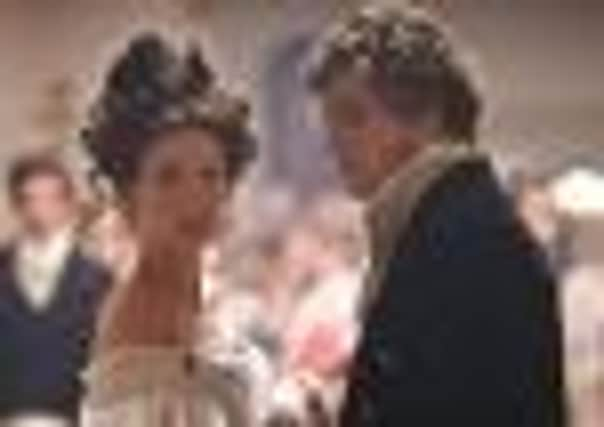Jayne Dowle: Novel burst of enthusiasm as Dickens flies high


So why did he ask me the other day if we might go and see the musical Oliver? This must be the first time in his nine-year-old life that he has willingly suggested we do anything cultural. Turns out it’s the song Food Glorious Food that has got him interested in Charles Dickens. He’s been learning it at school, and literally, he relishes singing it.
It’s perhaps not the most orthodox way to learn about the conditions of poverty that affected a good number of children in Victorian England. But if it’s got Jack’s creative juices salivating, then I’m all for it. I must admit, I never imagined for a moment that it would be Dickens who turned my son onto books, but thinking about it, I can see why.
Advertisement
Hide AdAdvertisement
Hide AdJack identifies with the children, of course, and Dickens was a master at inventing complex young characters who share the grubby enthusiasms of modern kids. He loves the precarious situations they find themselves in, in much the same way he loves the chaos that surrounds Bart Simpson, and how they have to pit their wits against adults to survive. And his natural sense of justice and fairness is being tested and measured against Oliver’s experience in the workhouse. It wasn’t “fair” then, and it isn’t “fair” now.
I wonder what the master storyteller would have made of that connection which even children still feel with his characters and plots. I wonder what he would have made of the countless films and television versions of his books which have been made over the years, and the fact that six million people took time out this Christmas to sit down and watch the BBC’s adaptation of Great Expectations more than 150 years after it was written.
And what the Dickens would he have had to say about booksellers reporting a huge surge of interest in his novels since both Great Expectations and The Mystery of Edwin Drood were televised?
Amazon, WH Smith and Waterstones all say that there has been an upswing in sales, especially since so many people realised that they had never actually read Great Expectations.
Advertisement
Hide AdAdvertisement
Hide AdThere is more than a bit of hype in this, of course. And it would be interesting to see if all these converts will be packing The Pickwick Papers to take on their summer holidays. But Dickens would have understood. His novels, often published in serial form, were the very first soap operas. He “got” popular culture before we even realised it had been invented. Unlike Jane Austen, say, his work appeals to both sexes and all kinds of people. You don’t need a degree in English Literature to enjoy him. And there is nothing prissy about Abel Magwitch.
Fellow novelist Anthony Trollope dismissed Dickens as “Mr Popular Sentiment”. And it is all too easy to fall into the Christmas Carol bonnets’n’boot-straps trap, although the Muppets well and truly trashed the mawkish elements of that particular tale. But I would argue that the reason why we clearly still love Dickens is because we find delight in the fact that he is so thoroughly modern.
We might rot our brains with pointless TV detective serials, and prefer children’s books to tackling Tolstoy, but a kind of collective national pride swells up when we watch or read Dickens.
He created characters that we still recognise today; the ruthless heiress, the neglectful father, the young man wondering how he is going to make his way in the world. Get rich overnight? Discover your parents are not quite who you thought they were? Find yourself with some brothers and sisters you didn’t expect? Delving into Dickens is like the Jeremy Kyle show with better costumes and far more elegant language. And the personal situations his characters find themselves in can still be remarkably relevant to the 21st century.
Advertisement
Hide AdAdvertisement
Hide AdAnyone with a passing knowledge of Dickens who has ever attempted to buy and sell a house or had any dealings with the protracted intricacies of probate is sure to recall the case of Jarndyce vs Jarndyce in Bleak House and wondered whether it’s going to go on as long.
I wasn’t much older than Jack when I first read Hard Times, and I still remember the shock (and excitement) I felt when I realised that Dickens was telling me about things which could have happened to my own ancestors.
Granted, my son’s knowledge of Dickens is pretty limited so far. I don’t think he is ready yet to experience the sheer disturbing cruelty of Nicholas Nickleby, for instance, with its pre-occupation with debt, bad investment and financial ruin.
But if you really want to know what Dickens can teach us in 2012, I’d recommend it as a set text. Here, in Dickens’ world, as in ours, everything has a price: “a mania prevailed, a bubble burst … four hundred nobodies were ruined” I wonder if George Osborne has a copy on his bedside table?